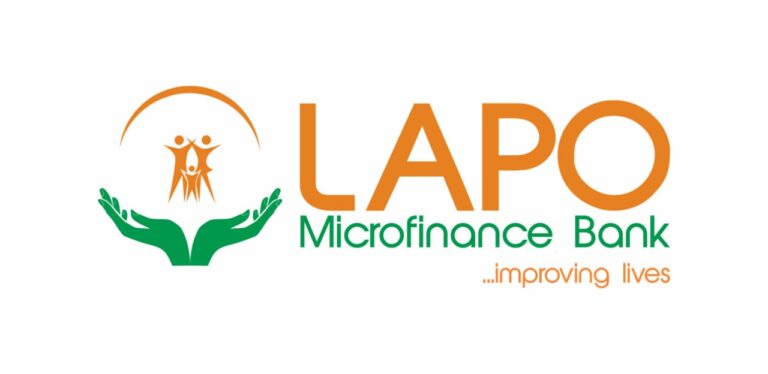In a nation where small businesses drive innovation and job creation, the importance of sustainable financing cannot be overstated. With over 40 million micro, small, and medium enterprises (MSMEs) contributing nearly 50% to Nigeria’s Gross Domestic Product (GDP) and employing over 80% of the workforce, according to data from the International Finance Corporation (IFC) and the World Bank, the SME sector occupies a pivotal place in national development conversations.
Yet, despite its significant contribution, the sector remains burdened by a considerable financing gap—estimated at over $158 billion, as reported by the IFC. This gap leaves millions of businesses underfunded, undercapitalised and unable to scale. In this challenging financial landscape, LAPO Microfinance Bank (LAPO MfB) has emerged as not just a financial institution, but as a key enabler of grassroots economic growth.
With operations in 34 states and the Federal Capital Territory (FCT), LAPO MfB has built one of the most extensive and inclusive financial networks in the country. What sets the institution apart is its ability to evolve—from disbursing soft loans of as little as ₦100 at its inception in 1986 to now offering tailored SME loans of up to ₦2 million. This transformation is a result of a deliberate, data-driven response to the real financial needs of Nigeria’s economically active population.
“LAPO’s goal has always been clear—to impact the Nigerian economy socially and economically by designing financial solutions that speak to the realities of our people,” says Oluremi Akande, Director of Marketing and Corporate Communications at LAPO Microfinance Bank. “Over the years, we’ve witnessed the gradual shift of our clients from micro-level operations to small and even medium-scale enterprises. We’ve grown with them and our products have evolved too.”
The bank’s SME loan product is designed to meet entrepreneurs where they are, whether they’re market-based traders, agro-processors, artisans, or service providers. Beyond the numbers, the real impact lies in LAPO MfB’s ability to connect with clients across both rural and urban areas—especially those that commercial banks often overlook due to stringent risk assessment criteria.
According to data from the National Bureau of Statistics (NBS), microfinance institutions are increasingly playing a key role in Nigeria’s economy. LAPO MfB stands out among these institutions, having disbursed over ₦1.4 trillion in micro-credits to low-income earners, including petty traders, small-holder farmers, and small businesses across the country. This substantial financial support has helped to energize and stimulate Nigeria’s economy.
In the first half of 2023 alone, LAPO MfB disbursed over ₦74 billion to Micro, Small, and Medium Enterprises (MSMEs), reaffirming its commitment to providing easy access to credit for financially excluded members of society. The bank’s unique approach to risk management—utilizing community-based models, social guarantees, and alternative credit scoring—has enabled it to serve thousands of businesses effectively, maintaining impressive repayment rates.
LAPO MfB’s consistent performance and innovative strategies have earned it recognition as a top performer in Nigeria’s microfinance sector. In October 2014, the African Development Bank (AfDB) approved a USD 12 million line of credit to LAPO to support its expansion plans. This funding was intended to help LAPO reach its goal of serving 5 million clients by 2017 by providing affordable access to finance, savings, credit, and insurance to low-income individuals—particularly women—and micro/small enterprises in both urban and rural areas.
Similarly, in April 2021, the International Finance Corporation (IFC), a member of the World Bank Group, partnered with LAPO to expand its microfinance operations beyond Nigeria and Sierra Leone. The goal of this partnership is to extend banking services to low-income populations in sub-Saharan Africa, particularly in less developed economies and fragile states.
Through this collaboration, LAPO MfB has been able to increase financial inclusion and directly stimulate economic activity by increasing lending to micro, small, and medium enterprises (MSMEs) in the region. The partnership is a significant step in broadening LAPO Microfinance Bank’s impact beyond Nigeria, supporting its mission of empowering women and low-income individuals.
Many of these businesses have outgrown traditional microloans and are now seeking more substantial capital injections to support their expansion. LAPO’s response has been decisive: a broadening of its SME finance framework to accommodate more sectors, economically viable regions, and businesses with stable cash flows.
This strategic adaptation ensures that the bank retains its growing client base while also meeting the country’s urgent need for economic diversification. In the context of recent government policies aimed at revitalizing local industries and reducing reliance on oil revenues, institutions like LAPO are playing a critical role in financing the transition.
The results are evident. Thousands of entrepreneurs have accessed SME loans from LAPO in the past year alone. Many have cycled through multiple loan stages, expanded their operations, hired additional staff, and in some cases, moved into larger facilities. The ripple effect on community development, household income, and job creation cannot be overstated.
LAPO’s impact goes beyond disbursements. The bank offers continuous financial education, mentorship and business advisory services to ensure that clients not only access funds but also grow responsibly and sustainably. This full-circle approach to financial inclusion has strengthened LAPO’s reputation as more than just a lender—it is a partner in progress.
In an economy where access to credit can mean the difference between stagnation and success, LAPO Microfinance Bank continues to stand out for its bold, people-first approach. Its SME loan product is not just a line of credit—it is a lifeline for millions of Nigerians building businesses, creating jobs, and redefining what is possible in Africa’s largest economy.
As Nigeria charts its path toward sustainable economic growth, one thing is clear: LAPO Microfinance Bank is not just keeping pace. It is helping to set the tempo.

